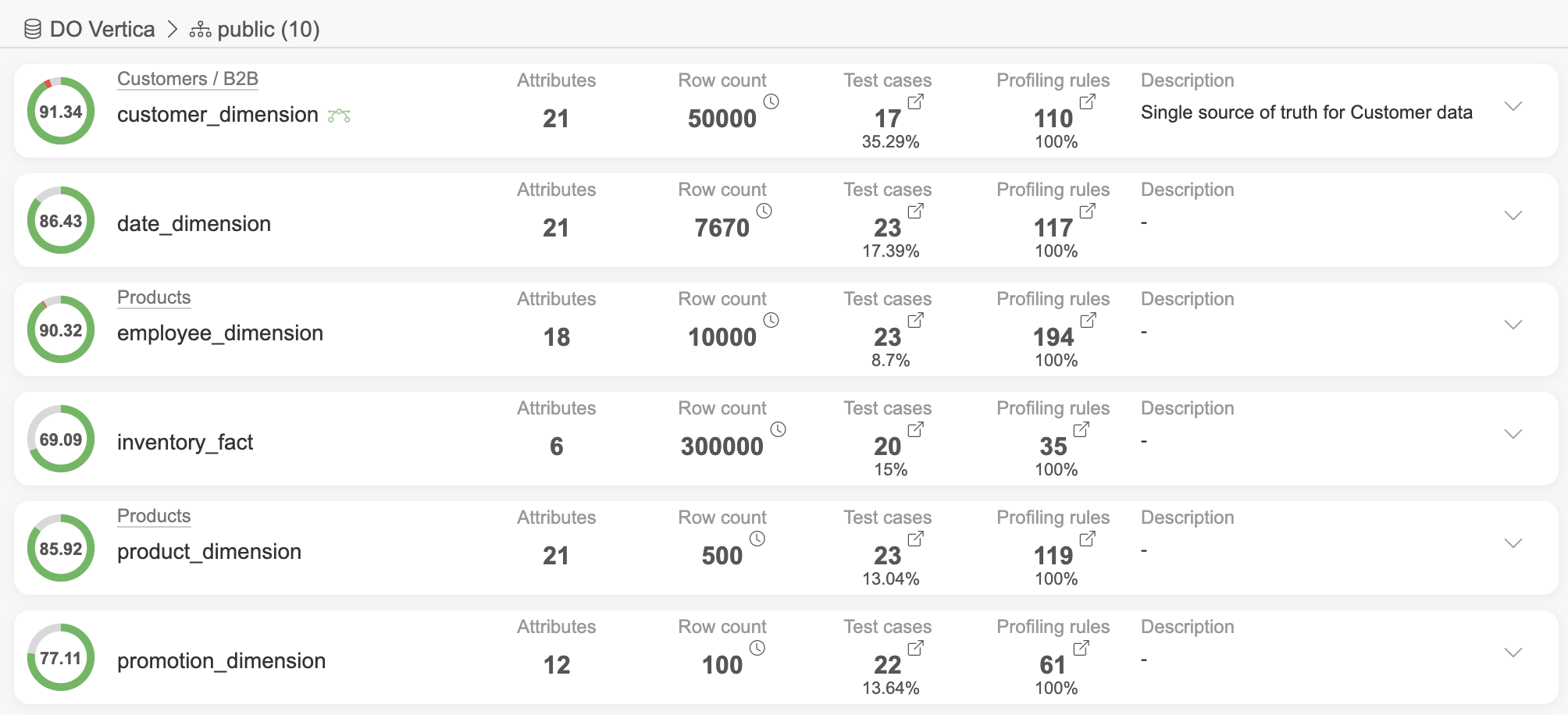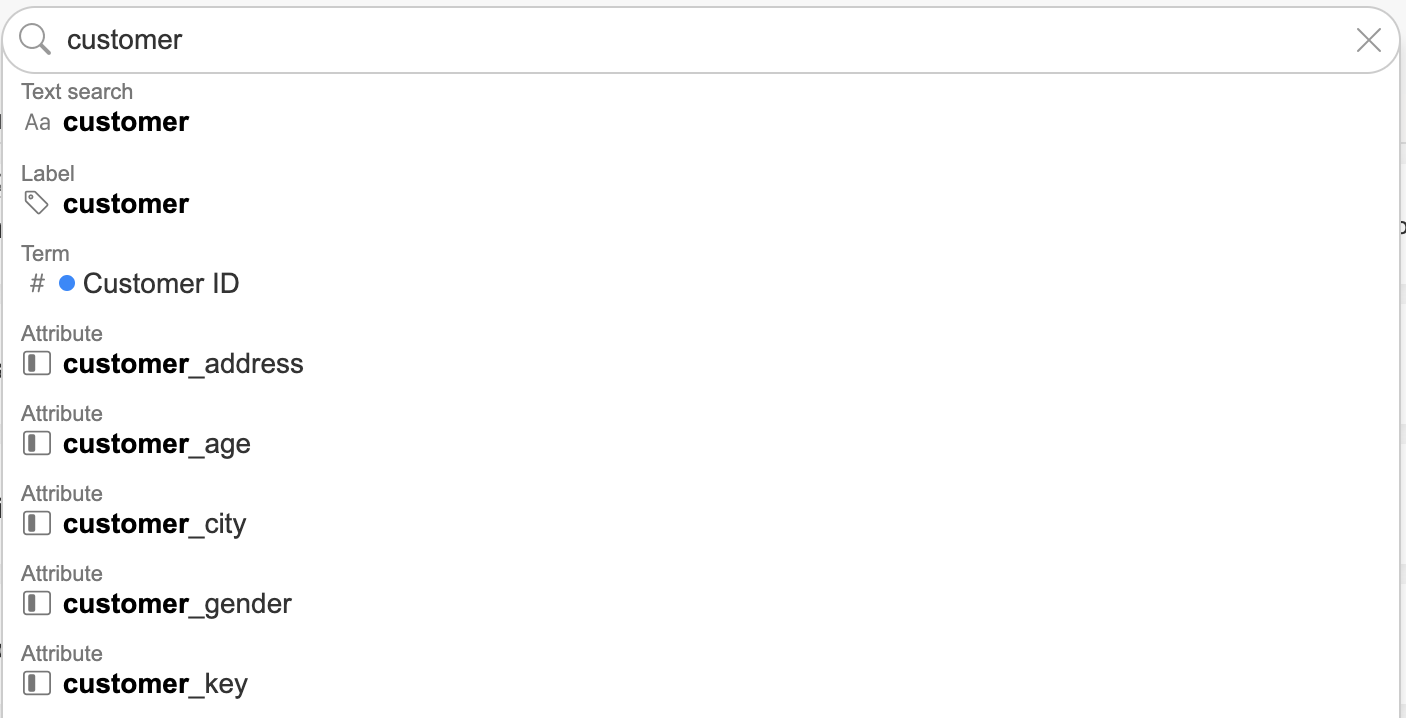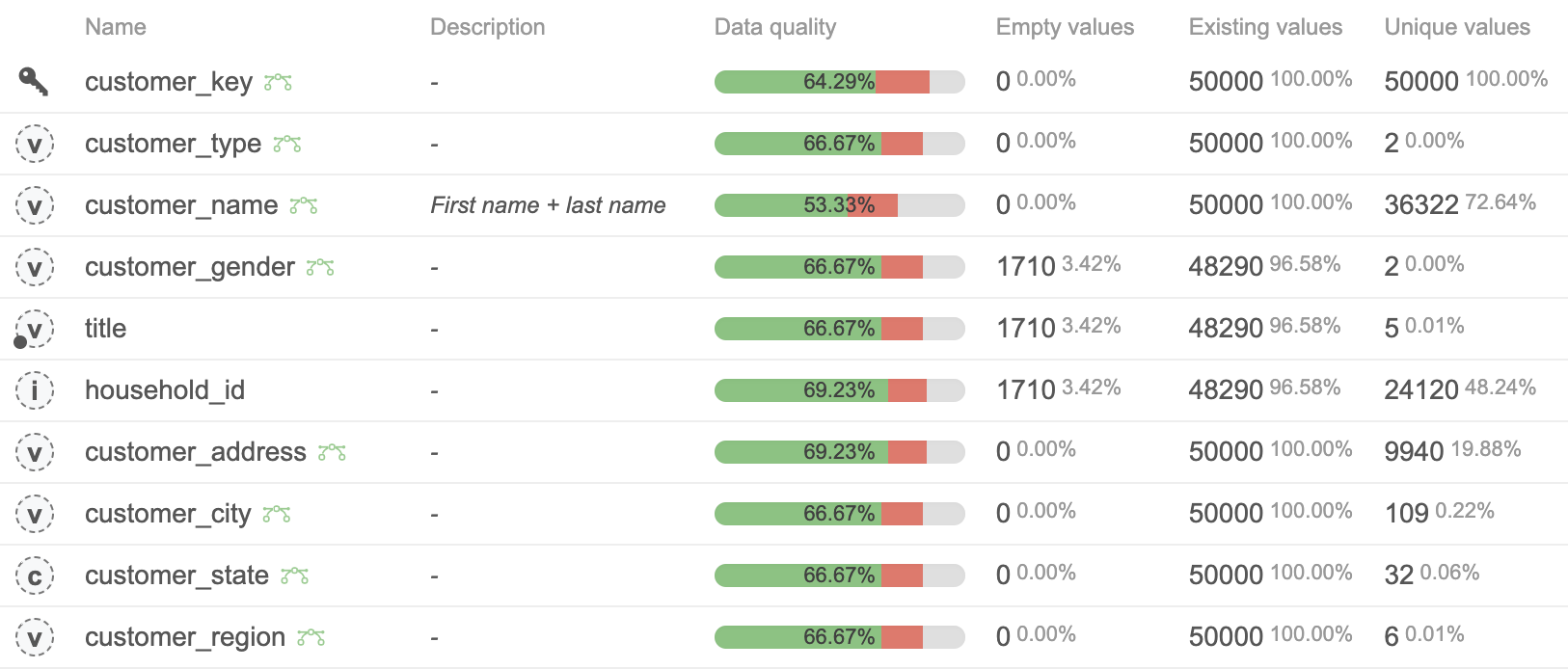A comprehensive data catalog provides a centralized and organized repository for managing all of your data assets, allowing users to efficiently discover, access, and understand the data they need. Equipped with detailed quality metrics, the catalog ensures that users can assess the reliability and integrity of data at a glance, promoting greater confidence in the information they rely on for decision-making. By centralizing data from across various systems, the data catalog streamlines data management processes, reduces duplication, and enhances collaboration across teams. Users can search, explore, and gain insights into the context and relationships of data assets, making it easier to understand how data fits within broader business operations. This improved transparency and accessibility empower teams to make more informed, data-driven decisions, fostering a culture of trust and efficiency within the organization.
 Overview of data assets
Overview of data assets
A data catalog provides a full overview of all data assets, including objects and attributes from any database within your organization. This centralized repository allows users to access and explore comprehensive metadata, which includes detailed descriptions, quality metrics, and profiled data. By linking these technical data elements to business terms in the business glossary, the catalog ensures that both technical and non-technical users have a clear understanding of the data’s context and usage.


 Comprehensive search
Comprehensive search
The data catalog’s smart search feature allows users to quickly locate any object or attribute across all databases, making data discovery faster and more efficient. With intuitive search capabilities, users can perform simple text searches or find specific attributes by utilizing custom labels and links to business terms defined in the business glossary. This feature ensures that users, regardless of their technical expertise, can easily navigate the data catalog and find the information they need.
 Data quality metrics
Data quality metrics
The SelectZero platform automatically calculates a data quality score for every object or attribute within the data catalog, using the results of data validations and profiling activities. This provides users with a clear and detailed overview of the current state of data quality at the attribute level, empowering them to quickly assess the reliability and accuracy of their data. The platform also allows users to set automated notifications for any negative changes in data quality, ensuring they can proactively address issues before they impact business operations.



